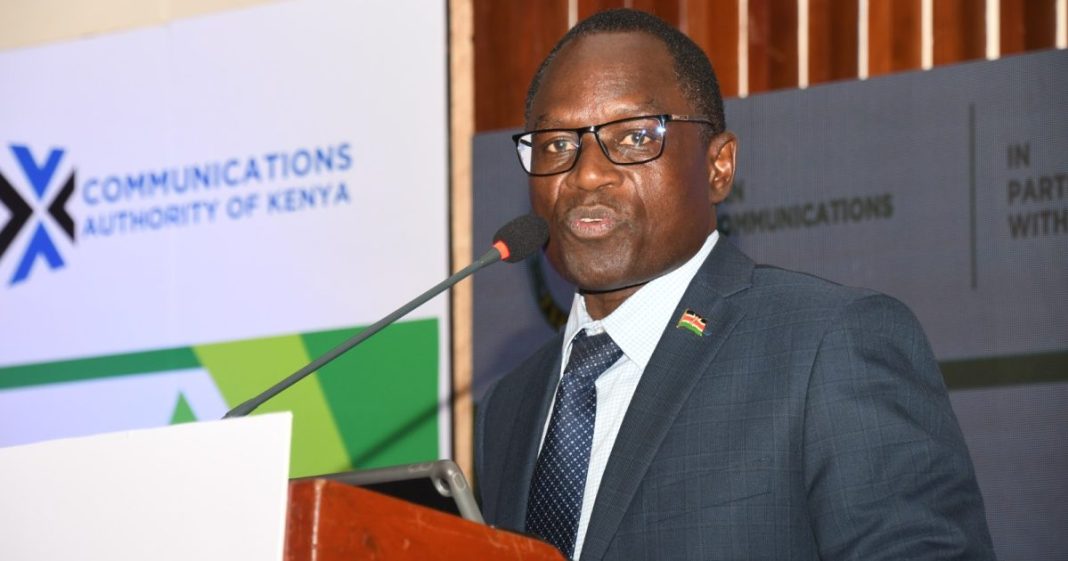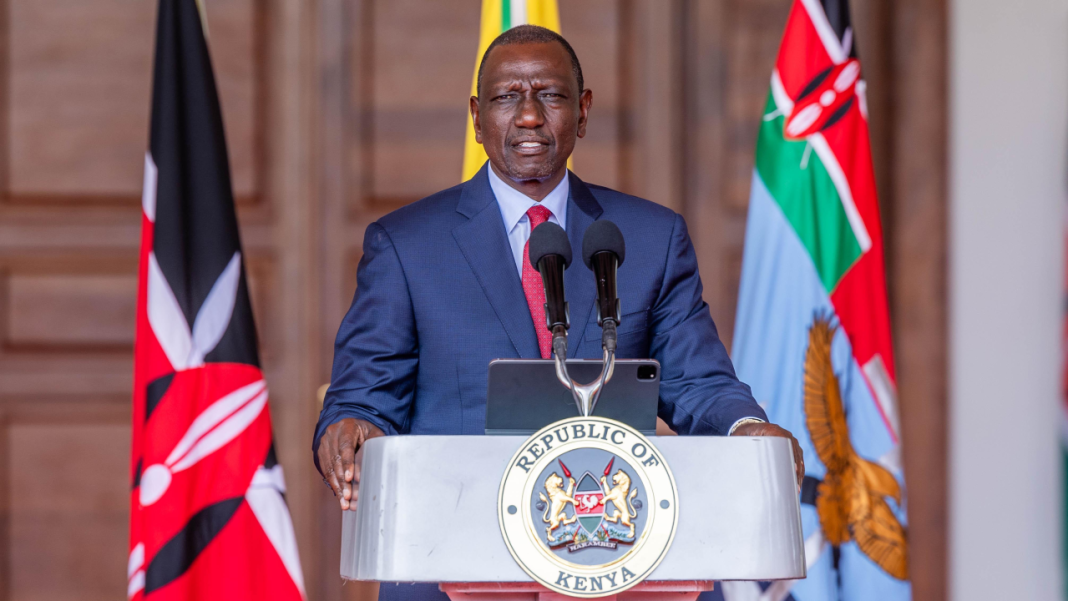The government has assured Kenyans that the Computer Misuse and Cybercrimes (Amendment) Act 2025 does not suppress free speech but seeks to protect families, journalists, and vulnerable groups from harmful online activity.
Principal Secretary for Broadcasting and Telecommunications Steve Isaboke clarified that the law aims to curb cyberbullying, child pornography, misinformation, and online radicalization challenges that have grown alongside Kenya’s digital revolution.
Speaking during the International Day to End Impunity for Crimes against Journalists in Nakuru, Isaboke, in remarks delivered by Information Secretary Temesi Mukani, said freedom of expression remains fully guaranteed under the Constitution.
“Criticism, opinion, or satire of the government is not an offense under this law,” he affirmed, adding that the Act only targets the criminal misuse of technology, such as online fraud, data breaches, impersonation, and spreading extremist content.
The PS noted that female journalists have increasingly become targets of online harassment, warning that unchecked abuse could silence women’s voices and weaken democracy. “A free, independent and secure media forms the bedrock of democracy,” he said.
This year’s commemoration, themed “Chat GBV: Raising Awareness on AI-facilitated Gender-Based Violence against Women Journalists,” highlighted the growing link between technology and gender-based violence.
Isaboke explained that Kenya’s amended cyber law borrows from global best practices used in countries like France, Australia, and the United States to protect minors and digital users. The Act, signed into law by President William Ruto in October 2024, takes effect on November 4, 2025, replacing the 2018 version.
The PS said the amendments introduce stricter penalties for cybercrime, simplify investigative oversight, and ensure stronger court supervision of digital offenses. He also disclosed that Parliament had held public consultations to balance regulation with rights protection.
“We cannot stand by while our children and vulnerable people are exposed to harmful content. The moral foundation of our society is at risk if digital spaces go unchecked,” he said.
Isaboke further highlighted ongoing government investments in digital infrastructure, including expanded fibre optic networks, public Wi-Fi hotspots, and digital hubs in all 290 constituencies under the Digital Superhighway program.
He revealed that the Ministry of ICT and Digital Economy is finalizing the National Communication Policy and Strategy, both of which aim to streamline government messaging and strengthen media ethics.
The government, he added, is also modernizing KBC and revamping the Kenya News Agency (KNA) to align with the digital era and enhance access to accurate public information.
“The State is working closely with the Media Council of Kenya, Communication Authority, counties, and private sector to promote digital safety and equip citizens with online literacy skills,” Isaboke said.
He urged media houses, civil society, and faith-based institutions to support efforts that promote responsible journalism and digital ethics, emphasizing that protecting children and journalists online requires collective responsibility.







[649]Jilipark Online Casino Philippines: Easy Login, Register & App Download for the Best Slot Games Experience Jilipark Online Casino Philippines! Easy jilipark login, register, and app download for the best jilipark slot games. Join the #1 online casino and win today! visit: jilipark